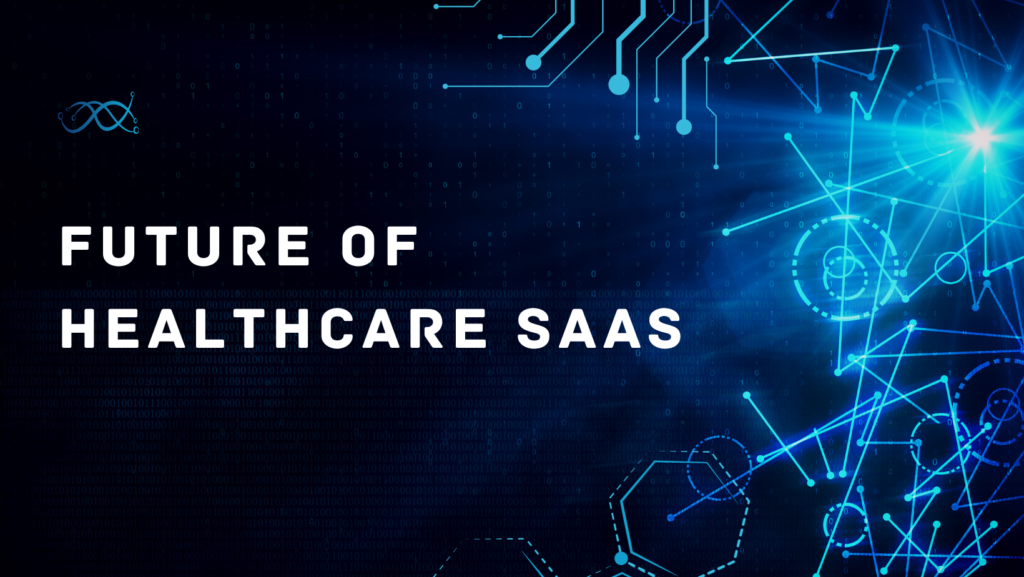The global healthcare industry is valued in the trillions, with the United States leading the way for decades. It establishes international healthcare agencies and shapes healthcare policies to combat chronic health threats like HIV/AIDS, malaria, and tuberculosis. Moreover, the US has been a trailblazer in medical innovation and the digital transformation in healthcare in recent years.
The transformations have resulted in the introduction of numerous new rules, regulations, and legislation, making healthcare compliance an essential requirement for medical institutions. These compliances encompass a wide range of aspects, including adhering to safety protocols, providing quality care, safeguarding confidential health information, coding medical billing systems, and more.
This blog will explore the significance of healthcare compliance and the risks associated with non-compliance. Additionally, we will outline the crucial regulations and laws that should be taken into account when developing a healthcare application.
What is Healthcare Compliance?
Healthcare compliance encompasses the comprehensive initiatives undertaken by medical organizations to establish robust security measures, processes, and protocols, aiming to prevent fraud, abuse, and misuse within their business processes. Adhering to standardized and secure procedures ensures that organizations fulfill the professional, ethical, and legal obligations mandated by various healthcare-related regulations.
As an example, when a medical association enforces stringent data privacy measures for storing, protecting, and disposing of patients’ personal medical information, it showcases the organization’s commitment to abiding by the laws, guidelines, regulations, and industry compliances.
Healthcare compliance laws are intricate and prone to frequent changes, often requiring operational and workflow adjustments, internal audits, continuous advancements, updates in IT compliance, and more. Violations of regulatory compliance in healthcare can result in legal repercussions, including federal fines.
This highlights why healthcare organizations maintain dedicated teams focusing on regulatory compliance. The Bureau of Labor and Statistics projects an 8% growth in the demand for compliance officers from 2016 to 2026. Achieving compliance in healthcare necessitates effective collaboration among legal experts, compliance officers, and software development firms, such as Digiatto IT Services, to develop robust and compliant healthcare solutions.
What is the Purpose of Healthcare Compliance?
Healthcare compliance encompasses a diverse range of practices applicable to all medical institutions, regardless of their size. Regulatory compliance in healthcare adopts a comprehensive approach, incorporating healthcare governance, risk management, and compliance (GRC) essential for establishing a secure and high-performing environment.
The primary objective of compelling medical associations to adhere to GRC is to enhance patient care. Nevertheless, the majority of healthcare regulations and compliance measures also prioritize aspects such as patient security, data privacy, and medical billing.
Why is Compliance Important in Healthcare?
The importance of healthcare compliance lies in its emphasis on patient safety, quality care, and data privacy. Noncompliance can result in severe consequences, including lawsuits, substantial fines, or even the revocation of licenses. In certain situations, the ramifications of failing to comply with regulations extend to matters of life or death, as a minor error can have grave implications for patient health, care coordination, data protection, and safety.
Complying with digital health standards can serve as a safeguard against potential cybersecurity threats or data breaches.
Compliance with healthcare cybersecurity standards ensures that everyone in the industry adheres to GRC guidelines and comprehends expectations, contributing to the delivery of safe and high-quality care. Medical practitioners who deviate from legitimate procedures may inadvertently harm a patient or another staff member.
What are Some Examples of Healthcare Compliance?
Digital health compliance delineates explicit guidelines outlining the dos and don’ts for Health Information Technology (HIT), personalized prescriptions, wearable technology, and telehealth. Healthcare mobile apps have become a prevalent means of providing medical services, particularly during and after the pandemic. Various regulatory compliance standards exist in healthcare that organizations must follow. Below are examples of some of the most widespread healthcare compliance standards:
Health Insurance Portability and Accountability Act (HIPAA)
Administered by the Office for Civil Rights (OCR) within the US Department of Health and Human Services, this act, known as HIPAA, guarantees the security and privacy of qualifying health-related data. In certain instances, it also mitigates the risk of data breaches. Non-compliance with HIPAA may lead to substantial penalties, varying from $100 to $50,000 per violation, contingent on the degree of culpability.
To prevent you from incurring such penalties, we create health apps that adhere to HIPAA standards, ensuring the secure handling of sensitive medical information associated with patients, hospitals, and doctors.
Federal Trade Commission (FTC) Act
The FTC enforces regulatory protocols addressing issues such as unfair claims, data security, data privacy, and business malpractices. This legislation extends to baseless claims made about the functionality of a mHealth app. The FTC’s Health Breach Notification Rule requires healthcare IT consulting firms to report data breaches, including those involving personal health records.
Federal Food, Drug, and Cosmetic (FD&C) Act
Implemented by the Food and Drug Administration, this act aims to ensure that medical devices and applications comply with standard guidelines and are safe for widespread use. It’s essential to note that not all healthcare apps are under this jurisdiction; only those that make false claims and present serious risks to consumer health fall within the scope of the FD&C Act.
HL7 Standards
Health Level Seven International (HL7) is a non-profit organization responsible for establishing industry standards for the exchange, integration, sharing, and retrieval of electronic health information, facilitating streamlined medical practices.
The HITECH Act
Enacted in 2009 during President Barack Obama’s administration, the Health Information Technology for Economic and Clinical Health (HITECH) Act strives to encourage widespread adoption of Health Information Technology, specifically through Electronic Health Records (EHRs). This legislation also reinforced provisions of the 1996 HIPAA Act, making it obligatory for healthcare entities to notify users in the event of compromised credentials.
We guarantee that every mHealth app we create adheres to the HITECH Act and can successfully withstand all security audits, ensuring the stringent enforcement of HIPAA privacy and security regulations.
Bring Your Device (BYOD)
The Bring Your Device (BYOD) is a conceptual practice where healthcare organizations permit medical staff to utilize personal devices such as smartphones and tablets for official duties. However, challenges may arise if your mHealth solution is not tailored to comply with BYOD security protocols.
Picture a situation in which an employee misplaces their smartphone containing crucial Protected Health Information (PHI). This is where a well-considered mobile device management (MDM) strategy becomes essential. By incorporating a remote wipe capability into the development of the mHealth solution, you can effortlessly delete data linked to the lost device, encompassing emails and browser information. Paying attention to such details during the initial stages of the Software Development Life Cycle (SDLC) can contribute to companies obtaining eventual BYOD approval.
GDPR
The General Data Protection Regulation (GDPR) is relevant to smartphone applications that gather and process customer data of European Union citizens. GDPR centers around privacy protection, aiming to empower individuals with some control over their data. It also ensures transparency in business practices related to the management of private data.
SaMD
The International Medical Device Regulators Forum (IMDRF), a global alliance promoting the systematic regulation of medical devices, created the Software as a Medical Device (SaMD) to provide practical guidance for advancing digital technologies in this sector. Led by the FDA, the group has produced numerous frameworks on risk categorization, quality management systems, and clinical evaluation.
How Can Digiatto IT Services Help You Follow the Regulatory Requirements of Healthcare Compliance?
Being a reputed healthcare software development company, we specialize in creating mobile applications and software solutions that comply with industry laws and regulations.
Secure Healthcare Software Development
Our proficient technical experts design state-of-the-art healthcare solutions with a robust emphasis on security and data protection. They can integrate encryption, authentication, and access control features to assist healthcare organizations in adhering to HIPAA and other data privacy regulations.
Telehealth Solutions
We develop mHealth and telemedicine applications that conform to the regulatory standards unique to the healthcare industry. All our applications and software enable remote patient care while remaining within the confines of legal requirements.
Healthcare Compliance Consulting
While we don’t offer legal services, we provide consulting on data security and healthcare compliance. We aim to help healthcare professionals implement strong security measures to prevent data breaches and comply with healthcare regulations.
Software Integration
At Digiatto IT Services we can construct cutting-edge healthcare applications that seamlessly integrate with specific medical devices, facilitating a smooth flow of data between systems. This integration simplifies compliance-related tasks for healthcare associations.
Electronic Health Records (EHR)
All of our applications can effortlessly integrate with your current electronic health record (EHR) systems, guaranteeing that patient data complies with healthcare compliance laws. Additionally, we can assist you in developing a HIPAA-compliant EHR from the ground up, enabling secure viewing and sharing of patient medical information among medical professionals, pharmacists, and patients.
Compliance Auditing and Monitoring Solutions
Our comprehensive array of healthcare compliance services encompasses the creation of auditing and monitoring tools, aiding healthcare organizations in overseeing and auditing their compliance initiatives. These tools can effectively monitor access to patient data, identify potential violations, and generate reports to showcase compliance.
Final Thoughts
The anticipated national healthcare expenditure in the US is expected to reach $5.7 trillion by 2026, driven predominantly by the incorporation of healthcare trends such as mHealth, telemedicine, wearable technology, sensors, and remote monitoring tools. These advancements in healthcare signify significant progress in medical solutions, establishing swift and unprecedented connections with the general population.
Keeping pace with this swiftly evolving industry, harnessing emerging technologies like AI, ML, IoT, AR/VR, Blockchain, etc., and ensuring compliance with healthcare regulations can pose a significant challenge for many organizations.
Let Digiatto IT Services be your steadfast technology partner, delivering top-notch healthcare software development services to elevate your business safely and successfully.
Interested in learning more about our healthcare compliance software solutions? Reach out to our experts today.


